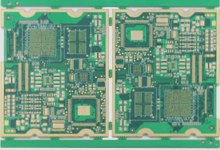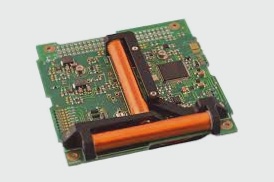Special Plating Methods in PCB Circuit Board Welding
-
Finger Row Electroplating
Finger row electroplating, also known as protrusion electroplating, involves plating rare metals like gold on board edge connectors or protruding contacts to improve contact resistance and wear resistance. The process includes stripping the coating, scrubbing with abrasives, nickel plating, gold penetration treatment, and final gold plating.
-
Through-Hole Plating
Through-hole plating is essential after the drilling process in PCB production. It involves building an electroplating layer on the hole wall to meet requirements. Using specially designed low-viscosity ink can simplify the process by forming a high-adhesion film on the inner wall of each hole.
-
Reel Linkage Type Selective Plating
Selective plating is used on electronic component pins for good contact and corrosion resistance. This method, which can be manual or automatic, involves coating a resist film on parts that do not need plating and electroplating only on selected areas of the copper foil.
-
Brush Plating
Brush plating is an electrodeposition technique where only specific areas are plated, commonly used for repairing discarded circuit boards. It utilizes a special anode wrapped in an absorbent material to apply the electroplating solution precisely where needed.
These advanced plating methods play a crucial role in enhancing the performance and durability of PCB circuit boards, ensuring optimal functionality in electronic devices.


